Holidays are approaching, as is Black Friday. No reason to brave the madding crowds when you can make a jewelry maven happy by ordering something from the safety of your home. So what are your choices? I’ll tell you what made me happy this year.
Topping my list would be the latest edition of Celebrating Jewellery. Mine arrived hot off the presses last month, on my birthday by happy chance, so it felt like I was opening a surprise gift. The hefty white cardboard sleeve it comes in helped, but the best part is inside: page after page of beautiful images of the world’s most beautiful jewels. Here’s a taste of what you’ll find:
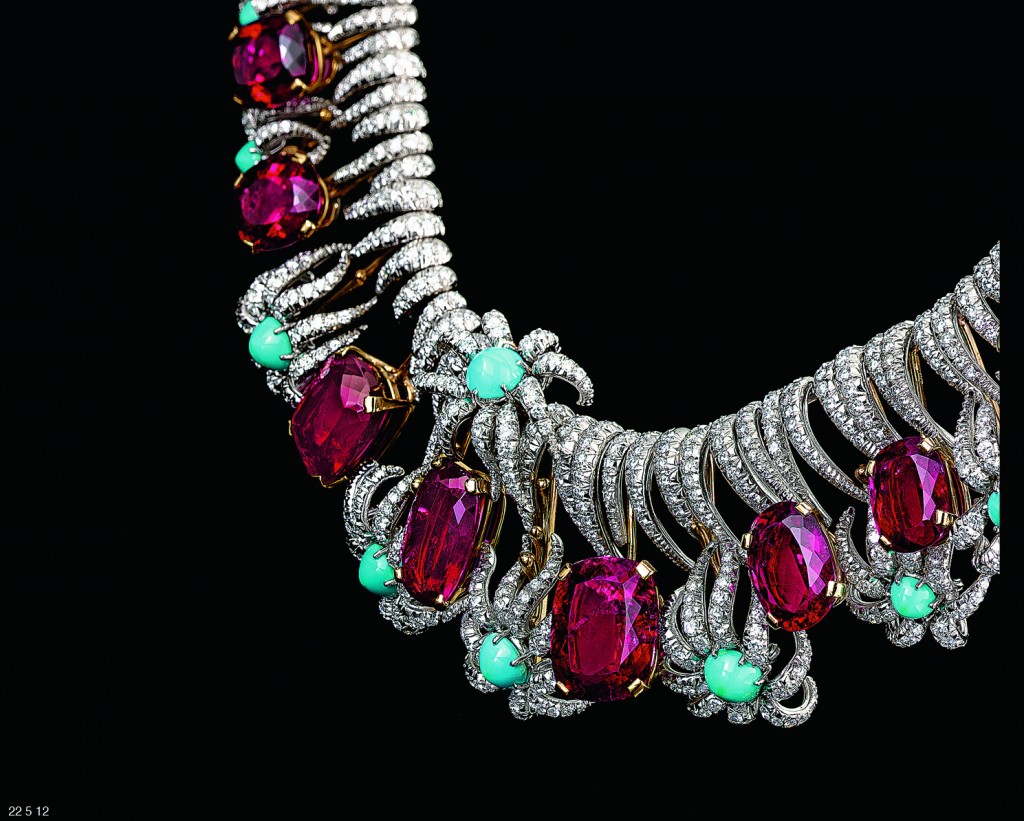
David Bennett, chairman of Sotheby’s International Jewellery Division for Europe and the Middle East, co-authored the book with the London-based Daniela Mascetti, who has worked for Sotheby’s for over thirty years. Together, they’ve handled a lot of priceless jewels and this book represents their idea of the creme of the jewelry arts over two centuries.
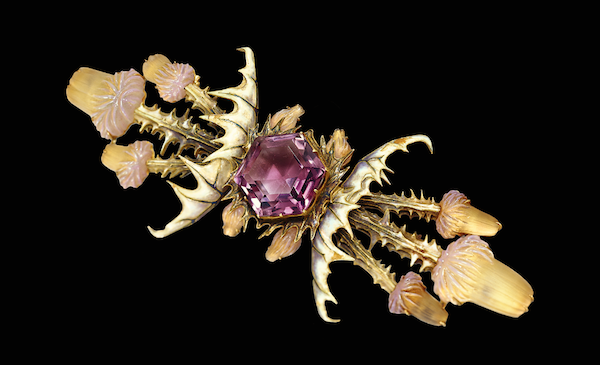
Along with examples from the major jewelry houses, particularly Cartier and Van Cleef & Arpels, they chose several pieces by René Lalique, including this typically treacherous-but-sublime thistle brooch.
Suzanne Belperron, René Boivin, Raymond Templier, and Sterlé also made the cut, as did Jean Schlumberger, who designed the mouth-watering necklace pictured (top), as well as this moonstone jellyfish brooch for Tiffany.
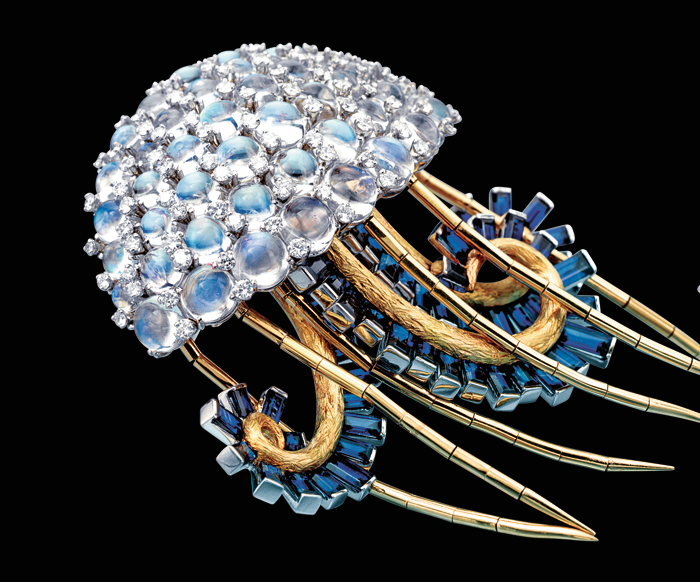
Picture that sea creature several times larger floating across the black sea of a double-page spread and you’ll get a hint of the delicious surprises in this book.
Bennett and Mascetti start with 19th-century pieces such as this 1870 Archeological Revival head of Bacchus attributed to Castellani, the Italian jewelry company best known for reviving the lost art of granulation. There’s a giant detail shot of this piece in the book that literally took my breath away.
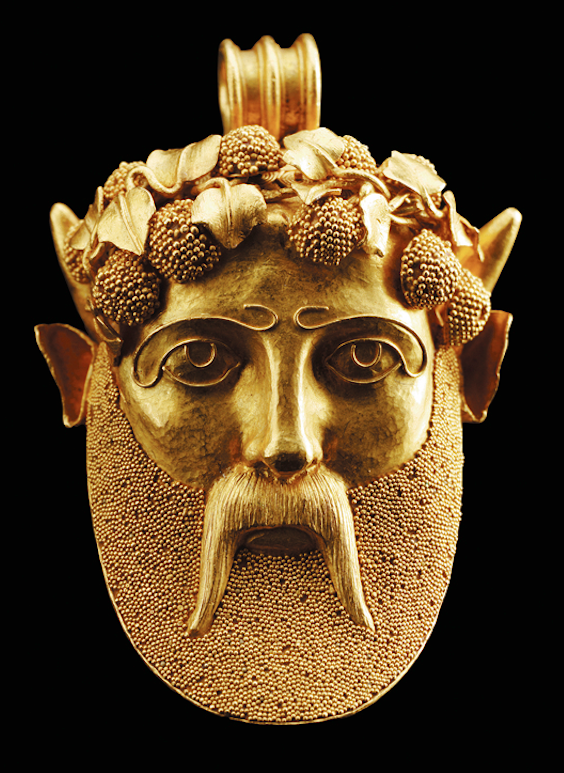
While background on history and significance is included, you can probably tell by now that this is a picture book, first and foremost – large (10″ x 12″, 324 pages), heavy (7.7 pounds) and wall-to-wall photos.
I still have Understanding Jewelry by these authors, first published in 1989. My edition, with 833 smallish pictures sprinkled through an encyclopedic history of jewelry, seems quaint compared to the current version of Celebrating Jewelry. Though both focus on the same period, the latest is less encyclopedia and more lavish production, with dramatic spreads that sometimes show just half a piece bleeding off a page.
The book ends in the late 1980s with two pieces by the Paris-based American designer Joel Arthur Rosenthal, better known as JAR.
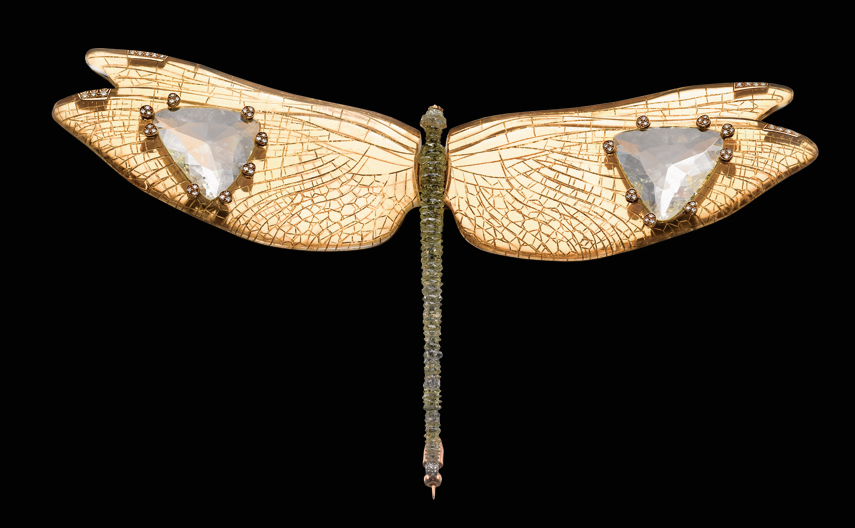
JAR appears to be the last living designer the authors deem worthy of inclusion among the most collectible jewels in the world (beyond a little piece they slide in at the end by Bennett himself).
It’s a visual delight leafing through this. Like a really good museum exhibition, you can’t take it all in one go-round. But then, if you have the book, you won’t have to.
Related posts:
JAR: designer jewelry as calling card
Neil Lane: Reviving Renaissance Revival
JAR in full flower: 18 rare jewels on the block
René Lalique: ultimate art jeweler
Related products:


